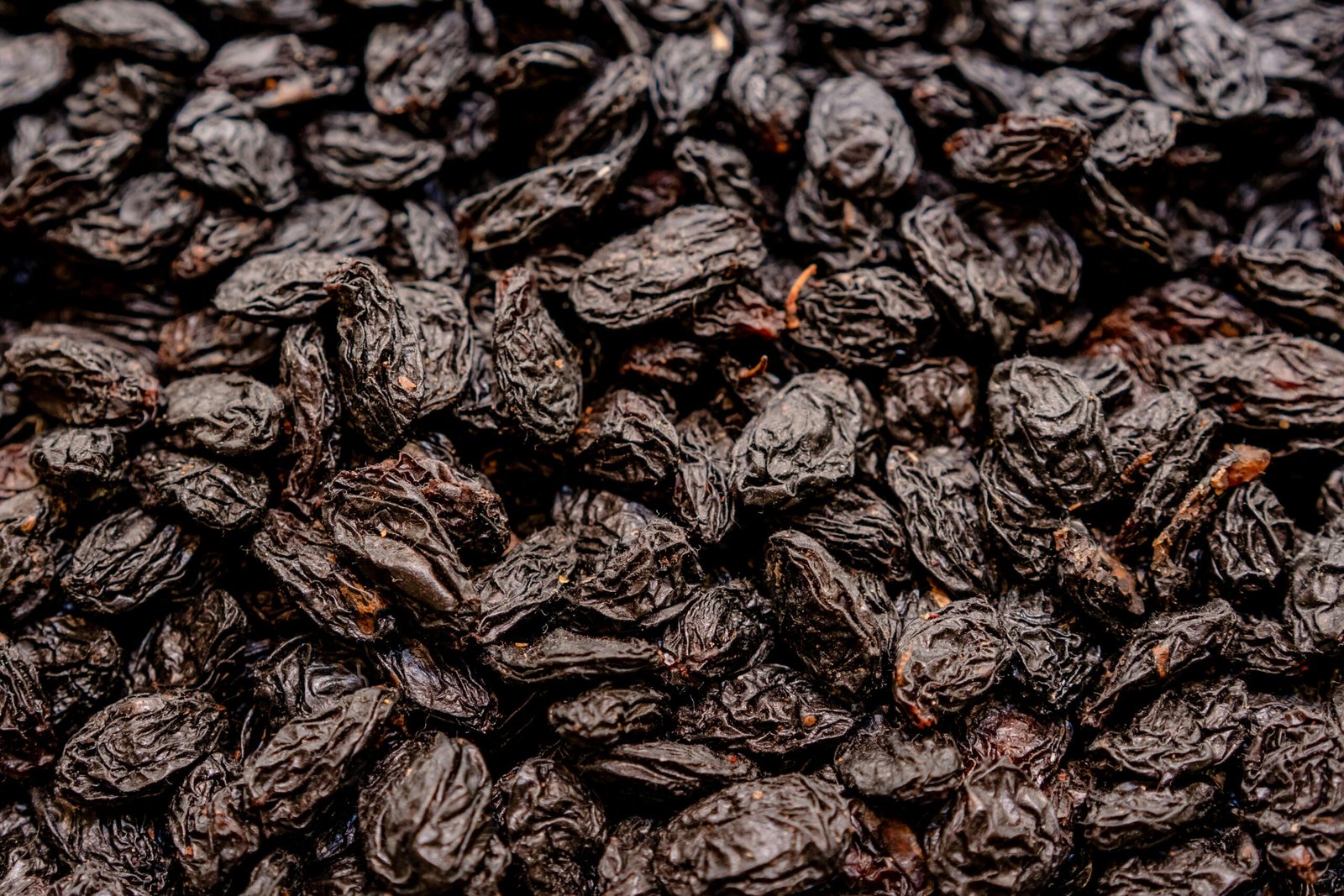Prunes are dehydrated plums, sometimes called dried plums. Like many fruits, they are rich in potassium and also good sources of Vitamins A, B6, C, K, Copper, Iron and Manganese. Prunes tend to come from either the Japanese yellow plum, which is larger and juicier or the European purple or dark blue varieties. Purple plums tend to have a slightly cooling effect on the body, while the yellow varieties are thought to have a more neutral effect.
What are the Benefits of Prunes?
The most well-known use of prunes is as an effective aid to easing constipation and they really do excel at this. Prunes contain a lot of both soluble and insoluble fibre, the combination of which is ideal for moving the bowels frequently. They also contain sorbitol and chlorogenic acid which both support bowel movements. Sorbitol is a sugar alcohol, common in fruits, which gives sweetness but also has a laxative effect when consumed in larger quantities. This is due to the limited capacity of the body to absorb it, combined with their property of retaining lots of water. So when enough prunes are eaten, they pass into the large intestine and carry with them lots of moisture, making the stools softer, bulkier and easier to pass.
Prunes are also thought to have positive effects on the health of the gut microbiome, which thrives on fibre, as well as bone health, blood pressure, cholesterol levels, cognitive health and even diabetes. While dried fruits are often avoided when one is being mindful of blood sugar regulation, the high fibre content of prunes helps to slow down the absorption of sugars and thus reduces the release of insulin.
Prunes are thought to aid in detoxification and cooling of the liver. This occurs from both the improved transit of stools in the bowel, thus reducing the strain on the liver, but also through a more direct effect on the liver itself. Prune juice is often used as a cleansing remedy, more on this below.
If you would like personalised guidance and support with your nutrition or to deal with constipation or other health issues, consider consulting with me. Click here to learn more.
When Should You Eat Prunes?
Like most fruits, prunes should ideally be consumed alone for optimal digestion. Most fruits do not combine well with other foods, despite our habit to combine them with cereals or yoghurt. This is especially important if digestion is impaired in any way. Eat fruit before the start of a meal, not as a dessert – fruit digests more quickly than most other foods and if it is consumed after a meal it could begin to ferment. Most people tolerate prunes well in a fruit smoothie, with a salad or as a snack alone.
A small amount of prunes could be eaten daily throughout the year. However, in larger quantities, or in the form of juice, their effects are best utilised primarily in spring, which is the natural time at which your body, and the liver in particular, cleanses itself.
However, like all foods, prunes may be more suitable for some people than others.
Are Prunes Suitable for Everyone?
A key idea within naturopathy and nutritional therapy is that we treat the person rather than the diagnosed disease or symptom. This is because every person is different and therefore will react differently and their disease may have developed in a distinct way. So are prunes more suitable for some people than others?
Prunes, like a lot of fruits, tend to have cleansing properties for the body. This is especially useful when there is excess weight or stagnation, including constipation, but they should always be eaten in moderation. In excess, prunes can cause weakening and encourage dampness in the body, so they should be minimised or avoided in people who already have those conditions. In Ayurveda, this condition could be defined as an excess of the Kapha dosha. In Unani, Tibetan or Greek medicine, people that tend towards this condition would be classified as being phlegmatic, having an excess of phlegm. Excessive amounts of prunes are not so suitable for these people. However, in moderation, they can assist in reducing stagnation in the bowels. The juice is especially suitable for this and for the Kapha dosha/phlegm in general.
Prunes are especially good for balancing the Pitta dosha and fine in small amounts for those with an active Vata dosha. This connects with the liver cleansing effects, as the liver is one of the main organs related to the Pitta dosha. Also the Pitta dosha is characterised by excesses of heat, and we know that prunes have a cooling property, thus can help to rebalance these people.
There is some disagreement on the exact energetic properties of prunes, with some sources classifying them as strongly cooling and drying and other cooling and moist. This probably depends upon their preparation – are they dried or soaked? So if one is suffering from a condition of dryness in the body, soaked prunes would be more sensible and vice versa, if one is suffering from damp conditions, dried prunes might be best. Remember that prunes hold onto a lot of water, so if you are eating dried prunes, they might absorb more water from your gut, increasing dehydration. If you have a tendency towards dryness and dehydration, you may wish to eat your prunes soaked and in small quantities only.
In addition, one should consider the possibility of cross-reactivity in those with allergies. For people with hay fever, the most common allergy is to birch pollen in the UK, causing allergic symptoms in the early spring, typically February to April. Plums are one of the foods that can cause a reaction in these people, as the body considers some parts of the fruit similar and this may trigger a reaction. This is more of an issue with raw plums than prunes, but it could be a consideration for those who are extremely sensitive to spring pollen. It is unlikely to be an issue for most people.
Any Cautions for Eating Prunes?
Like all things, prunes should be eaten in moderation. For a daily intake, the general consensus is that 4-6 prunes is reasonable. When using prunes to assist in the regulation of bowel movements, one should experiment with the quantity up to a maximum of 6 per day in order to get the desired stool frequency and consistency. If one needs to take more than 6 prunes per day to achieve healthy bowel movements, there is likely a more serious issue that one should investigate with the assistance of a suitable healthcare professional.
Consuming prunes in excess can cause diarrhoea. Some people could experience bloating or gas because of the fibre and sorbitol content. But this is rare in low intakes.
One should also consider if there is another issue present which necessitates the eating of prunes to regulate the bowel movements. For example, is your bile production reduced?
If you would like personalised guidance and support with your nutrition or to deal with constipation, bile issues or other health issues, consider consulting with me. Click here to learn more.
References
Ayurvedic Nutrition, 2010, Smith, Vaidya Atreya.
Essentials of Human Nutrition, 6th Edition, 2023, Mann, Truswell, Hodson, Oxford University Press.
Healing with Whole Foods, Asian Traditions and Modern Nutrition, 2002, Pitchford, North Atlantic Books.
Taoist Secrets of Eating for Balance, 2019, Chia, Mantak, Destiny Books.




